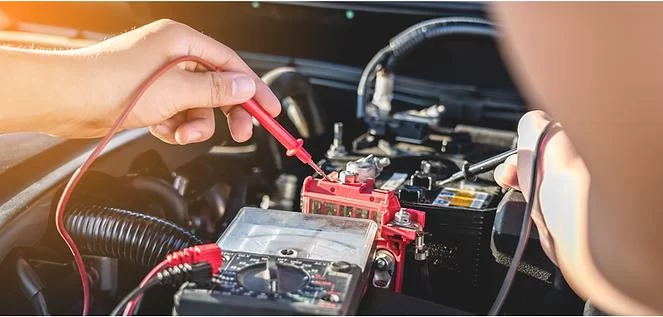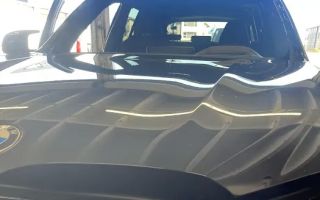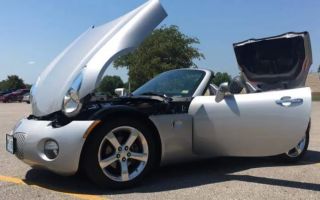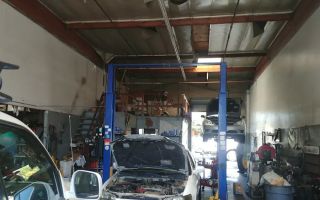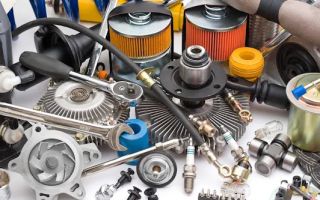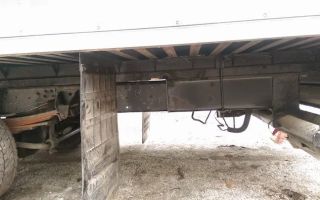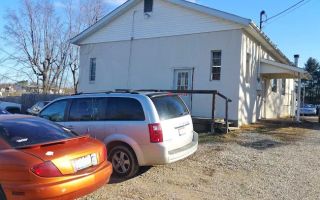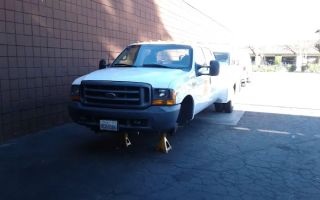Diagnosing and Solving Car Electrical Problems: A Personal Guide
There's nothing more frustrating than being stuck in your car, only to realize that an electrical problem is the reason you can't get the engine running. Whether it’s a dead battery, malfunctioning alternator, or a blown fuse, electrical issues in your car can be tricky to diagnose and even trickier to solve. As someone who has been in this situation more than once, I know how daunting it can feel when your car suddenly stops functioning due to electrical failure. The good news is that with some basic knowledge, the right tools, and a little patience, most car electrical problems can be diagnosed and fixed.
Over the years, I've learned to troubleshoot car electrical systems, and now I feel confident when something goes wrong. This article will guide you through diagnosing and solving car electrical problems, providing step-by-step instructions to help you fix common issues. Whether you're a seasoned mechanic or someone who's never worked on a car before, this guide will help you understand how to approach electrical problems in a straightforward, practical way.
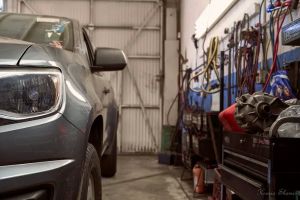
Craig's Auto Repair
11037 Stranwood Ave, Mission Hills, CA 91345, USA
1. Understanding the Basics of Car Electrical Systems
Before diving into troubleshooting, it's important to understand how a car’s electrical system works. The system is essentially made up of several components that work together to power the vehicle and its features. From starting the engine to keeping your headlights on at night, your car’s electrical system plays a crucial role in its performance. Here's a quick overview of the main parts of the system:
1.1. The Battery
The battery is the heart of your car’s electrical system. It supplies the power needed to start the engine and powers many of the vehicle's electrical components. If your car won’t start or you notice dim lights, the issue could be with the battery. I remember a time when my car wouldn’t start in the morning, and the culprit turned out to be a dead battery. The battery was simply old and no longer held a charge, which made it impossible for the car to start.
1.2. The Alternator
The alternator is responsible for charging the battery once the engine is running. If the alternator fails, the battery will quickly lose its charge, and your car will stop running. A faulty alternator was the cause of another problem I experienced, where my car suddenly stalled during a road trip. The alternator wasn’t charging the battery properly, and I found myself stuck in the middle of nowhere. Replacing the alternator fixed the issue and got me back on the road.
1.3. Fuses and Relays
Fuses and relays protect your car’s electrical components from damage by controlling the flow of electricity. A blown fuse can result in certain electrical features failing, such as the radio, air conditioning, or lights. When I first noticed that my car’s interior lights weren’t working, it turned out to be a blown fuse. Replacing the fuse was an easy fix, and the lights worked again immediately.
2. Identifying Common Car Electrical Problems
Now that we’ve covered the basic components, let’s take a closer look at some of the most common electrical problems you might encounter with your car. Knowing how to recognize these issues can help you diagnose the problem more quickly.
2.1. Dead Battery
A dead battery is one of the most common electrical issues that drivers face. Symptoms of a dead battery include the car not starting, dim headlights, or a clicking sound when turning the key. In my case, when my car wouldn’t start one cold winter morning, the battery was the first place I looked. If you’re dealing with a dead battery, you can try jump-starting it using jumper cables or a portable jump starter. If the car starts, the battery may need to be replaced soon. You can test the battery with a multimeter or have it checked at an auto parts store for free.
2.2. Faulty Alternator
A faulty alternator can lead to all sorts of problems, including stalling, dim lights, and a dead battery. One sign that your alternator may be failing is if your dashboard battery light comes on while you’re driving. If the alternator isn’t charging the battery, your car will eventually lose power. I once experienced this on a long drive, and it wasn’t until I had the alternator checked that I realized it needed replacing. If you suspect a problem with the alternator, it’s best to take the car to a mechanic as soon as possible, as driving without a working alternator can cause serious damage to the car’s electrical system.
2.3. Blown Fuses
If certain electrical components in your car stop working, such as the radio, lights, or air conditioning, it could be due to a blown fuse. To check for a blown fuse, locate your car’s fuse box (usually under the dashboard or near the engine) and inspect the fuses. A blown fuse will have a broken metal filament. I remember when my car’s radio stopped working, and a quick check of the fuse box revealed that the fuse for the radio had blown. Replacing the fuse was a simple fix, and the radio worked perfectly afterward.
2.4. Wiring Issues
Wiring issues can be a bit trickier to diagnose and fix, as they often involve frayed, corroded, or loose wires. Common symptoms of wiring problems include malfunctioning lights, loss of power to certain components, or intermittent electrical issues. I’ve had a wiring problem in the past where my headlights would flicker on and off. After inspecting the wires, I found that one of the connections was loose and needed to be tightened. If you're dealing with wiring problems, it’s best to have an experienced mechanic inspect and repair the issue.
3. Diagnosing Car Electrical Problems Step-by-Step
Diagnosing car electrical problems doesn’t have to be overwhelming. Here’s a step-by-step process I follow to troubleshoot and identify the issue:
3.1. Check the Battery
Start by checking the battery. If the car doesn’t start, check the battery terminals to ensure they’re clean and securely connected. If the connections are corroded or loose, clean them with a wire brush or replace the battery terminals. If the battery is old, it may be time for a replacement. You can also test the battery with a multimeter to check its voltage. A healthy battery should read around 12.6 volts when the car is off and between 13.7 and 14.7 volts when the car is running.
3.2. Inspect the Alternator
If the battery is fine, but your car still isn’t starting, the alternator could be the problem. One way to test the alternator is to start the car and then disconnect the negative terminal of the battery. If the car stalls immediately, the alternator is likely not charging the battery properly. If you’re unsure, many auto parts stores can test the alternator for you for free.
3.3. Check for Blown Fuses
Next, check the fuses related to the malfunctioning components. Use your car’s owner’s manual to locate the fuse box and identify which fuses control the electrical parts that aren’t working. Replace any blown fuses with fuses of the correct amperage, which can be found at an auto parts store.
3.4. Inspect the Wiring
Finally, if none of the above solutions work, inspect the wiring. Look for any exposed or frayed wires, particularly around areas like the alternator or battery. If you find any damaged wires, they’ll need to be repaired or replaced by a mechanic. In some cases, you may need professional help if the wiring is too complex or difficult to access.
4. When to Call a Professional
While some car electrical issues can be easily fixed with a little knowledge and effort, there are times when it’s best to call a professional. If the problem involves complex wiring, the alternator, or a deep electrical issue, it’s safer and more effective to have a certified mechanic handle the repairs. I’ve learned from experience that sometimes trying to fix a complicated electrical issue myself can lead to more problems, especially when dealing with the delicate electronics in modern vehicles. Don’t hesitate to contact a professional if you’re unsure about diagnosing or fixing the issue yourself.
For reliable towing and assistance with electrical issues, you can visit [Rescue & Towing] for expert recommendations on the best towing companies and services in your area.

